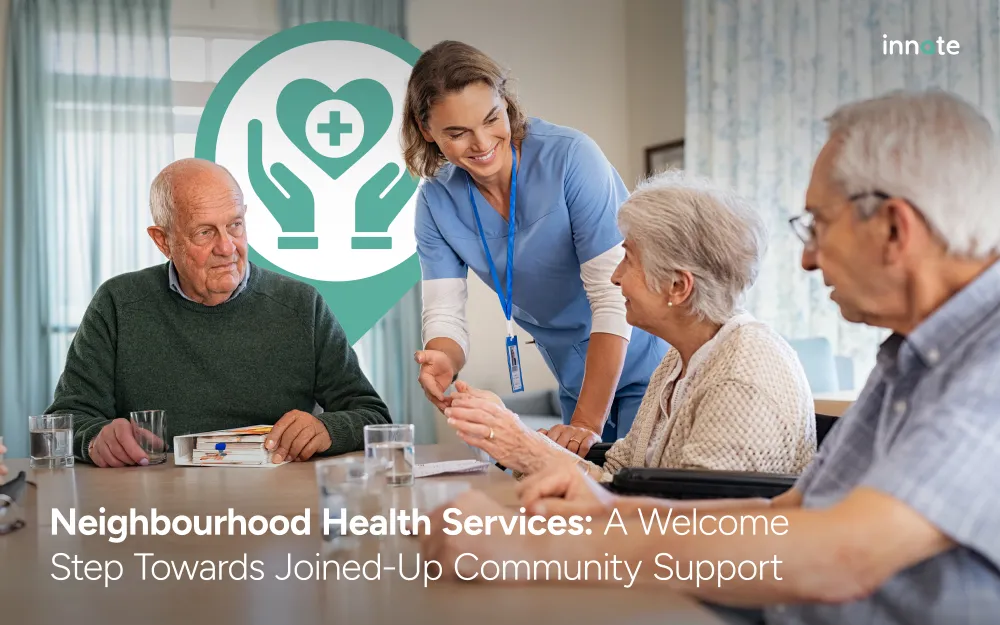
Across the country, people are struggling to get the right support, in the right place, at the right time.
That’s why the government’s new focus on Neighbourhood Health Services is something we’re paying close attention to. The idea is simple, but powerful: shift care out of hospitals and into local communities, bringing health, care, and wider support services together under one roof.
According to the plan, these new centres will operate six days a week for up to 12 hours a day and offer everything from GP appointments and diagnostics to mental health support, post-operative care, and even help with debt, employment and addiction recovery. Community health workers and volunteers will also play a key role - going beyond the clinic walls to reach people directly where they are.
It’s not a brand-new concept. Places like Derbyshire have already piloted similar models with impressive results - including reducing hospital admissions and improving coordination between services. What’s different now is the national scale of ambition.
At Innate Needs, this is exactly the kind of joined-up, local-first approach we’ve been advocating for.
We believe that clear, accurate signposting is one of the biggest enablers of better care. And that when organisations are visible and accessible - not just in real life but online - more people can get the support they need before problems escalate.
With nearly 13,000 services already mapped, we believe Innate Needs is already the UK’s largest community support platform. We’ve brought together everything from food banks and warm spaces to mental health groups, community fridges, and advice centres - so people can find help quickly, without digging through outdated directories or calling around.
As Neighbourhood Health Centres begin to roll out, we’re keen to actively highlight them on the Innate Needs map. That includes highlighting local NHS services alongside voluntary and grassroots support, so individuals and professionals alike can see the full picture of what’s available - all in one place.
We know that kind of integrated signposting makes a real difference. It means:
- A parent can find out if there’s a food bank open that evening, before payday hits.
- An elderly resident can easily spot a nearby social drop-in for tea and a chat.
- A GP or social worker can direct someone to the right kind of help - not just healthcare, but housing, financial support, or community connection.
Of course, for neighbourhood care to truly succeed, it will need more than good intentions. Funding, staffing, digital tools, and trust in the system all matter. And as some sector voices have already pointed out, details are still emerging.
But at a time when support services are stretched, fragmented, and often hard to find, any move toward greater coordination and accessibility is a step in the right direction.
Our message is simple: if your service becomes part of a Neighbourhood Health Centre or is linked to one in your area, let us know. We’d love to include it in the national Innate Needs map - helping make this new model easier to find, navigate, and use.
Together, we can make sure people don’t fall through the cracks - and that no matter where they live, they can access the support they deserve.